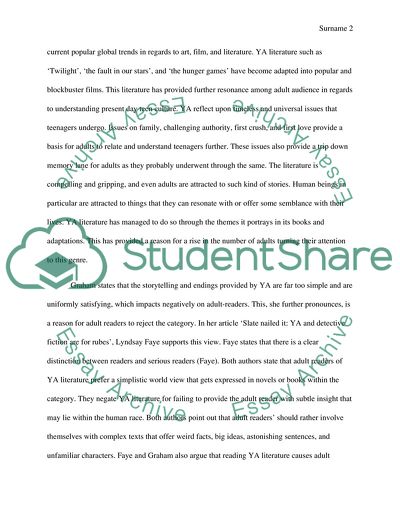Cite this document
(Should Adults read Young Adult Literature Essay, n.d.)
Should Adults read Young Adult Literature Essay. https://studentshare.org/literature/1850923-synthesis
Should Adults read Young Adult Literature Essay. https://studentshare.org/literature/1850923-synthesis
(Should Adults Read Young Adult Literature Essay)
Should Adults Read Young Adult Literature Essay. https://studentshare.org/literature/1850923-synthesis.
Should Adults Read Young Adult Literature Essay. https://studentshare.org/literature/1850923-synthesis.
“Should Adults Read Young Adult Literature Essay”. https://studentshare.org/literature/1850923-synthesis.


